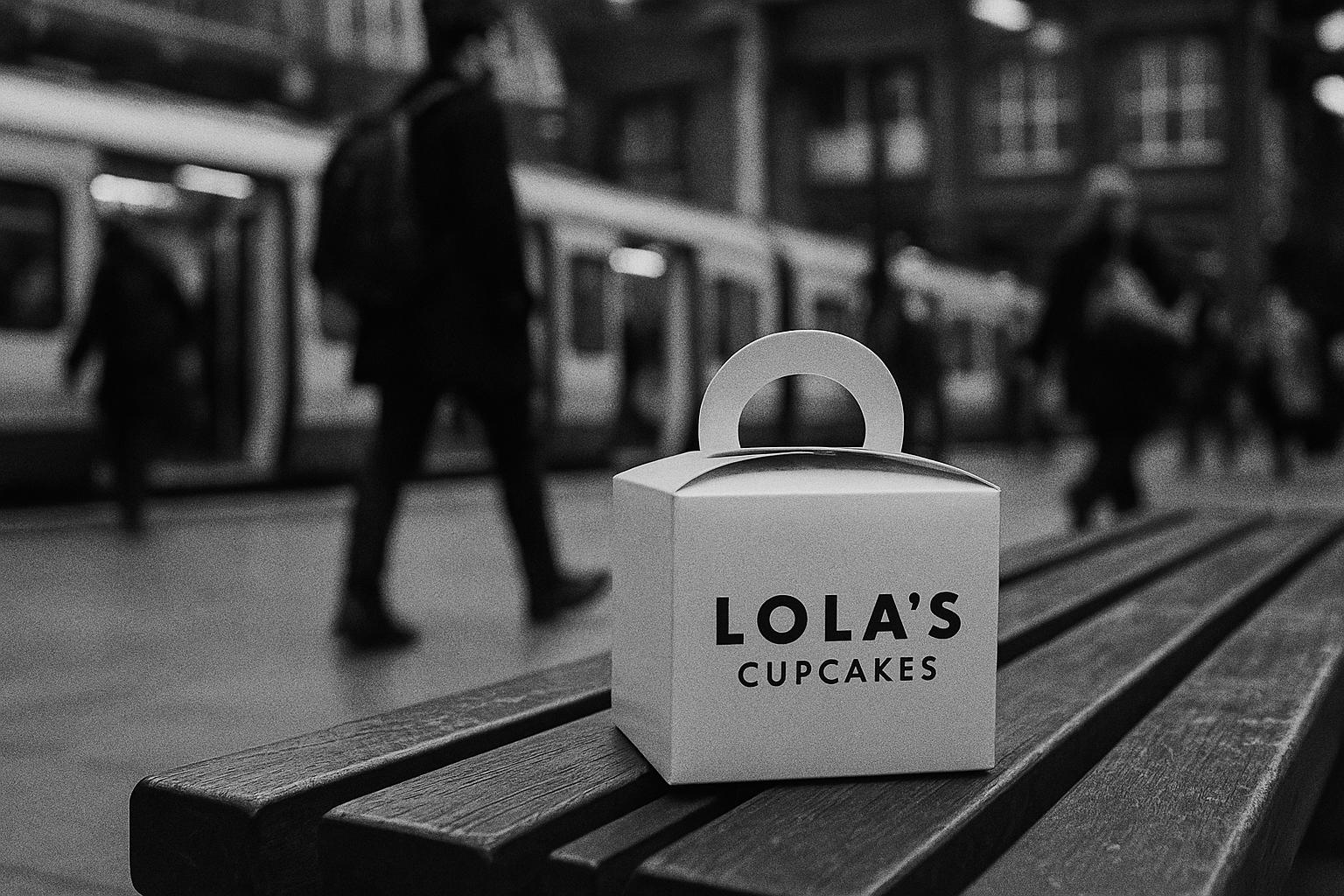Finsbury Food Group has agreed to acquire a 70% stake in Lola’s, bringing the London-born cupcake brand and its digital-first platform into the group as part of a buy‑and‑build strategy under new private ownership. The deal — valuing Lola’s at around £30m in some reports and tapping into c.£25–26m of revenue — marks Finsbury’s first move into consumer-facing retail and signals further acquisitive expansion.
Finsbury Food Group has agreed to acquire a 70% stake in Lola’s, the London-born cupcake and celebration-cakes business, in a deal the buyer says marks its first foray into direct-to-consumer retail. According to the company announcement, the move brings an established digital-first brand into Finsbury’s broader bakery manufacturing group and forms part of a wider buy‑and‑build strategy under new private ownership.
The group said Lola’s generates around £25 million of annual revenues; independent reporting has put the business’s recent sales even higher, with one industry analysis noting more than £26 million of turnover in 2024 and a marked improvement in pre‑tax profits. Media reports differ slightly on the transaction’s headline value—city sources cited by Sky and other outlets suggested the deal values the business at roughly £30 million, while public statements from the parties emphasise the strategic rationale rather than confirming a precise price.
Lola’s operates a multi‑format estate centred on high‑footfall travel and shopping hubs: the business runs around 40–45 kiosks and collection lockers across major London transport stations, operates nationwide delivery from its ecommerce platform and even maintains an international franchise in Japan. The brand is reported to employ roughly 400 people and to have shifted significant volumes online in recent years, with ecommerce accounting for a material share of sales.
Finsbury’s chief executive, John Duffy, welcomed Lola’s into the group in the company statement, saying the acquisition is “an exciting milestone” for the buy‑and‑build strategy and will allow Finsbury to “enter the direct‑to‑consumer market for the first time.” Asher Budwig, Lola’s managing director, added in the same announcement that he was “thrilled to be working with the Finsbury team” and expressed confidence that Finsbury’s manufacturing and commercial capabilities could be used to scale the brand further. The parties have said Lola’s will continue to be led by its existing management team.
The transaction sits against a backdrop of corporate change at Finsbury itself. The group was taken private by DBAY Advisors following a recommended acquisition late in 2023, a move advisers said was intended to give management scope to pursue transformational M&A and international expansion without the constraints of public markets. Industry commentators frame the Lola’s deal as a logical extension of that strategy: buying a consumer‑facing brand with established retail sites and a digital platform complements Finsbury’s manufacturing footprint and customer list.
Financially, Lola’s has been on an upward trajectory under current management, according to market reporting earlier this year which highlighted growing sales and improved profitability as the business invested in ecommerce and travel‑hub locations. Management has flagged further rollout plans across the South East and beyond, underlining why an acquirer focused on scale and manufacturing synergies might find the brand attractive.
That opportunity comes with operational challenges. Converting a primarily wholesale and manufacturing group into an effective owner of consumer retail sites and online fulfilment requires integrating supply chains, balancing cost‑to‑serve for city kiosks and lockers, and protecting brand equity while pursuing expansion. Finsbury’s executives point to the group’s production strengths as the means to mitigate those risks, while Lola’s leadership stresses continuity of day‑to‑day operations.
As the parties move from announcement to integration, attention will centre on how quickly the combined group can translate complementary capabilities into growth at margin. For now, Finsbury has added a recognisable consumer brand to its portfolio and signalled that further acquisitions are likely to follow as it pursues the buy‑and‑build plan under private ownership.
 Reference Map:
Reference Map:
Reference Map:
- Paragraph 1 – [1], [3], [4]
- Paragraph 2 – [1], [7], [2]
- Paragraph 3 – [3], [4], [5], [2]
- Paragraph 4 – [1], [3], [4]
- Paragraph 5 – [6], [2], [4]
- Paragraph 6 – [7], [3]
- Paragraph 7 – [1], [6], [3]
- Paragraph 8 – [1], [3]
Source: Noah Wire Services
- https://www.grocerygazette.co.uk/2025/08/15/finsbury-food-group-acquires-70-stake-in-lolas/ – Please view link – unable to able to access data
- https://news.sky.com/story/lola-s-cupcakes-bakes-30m-takeover-by-finsbury-food-13411626 – Sky News reports that Finsbury Food is in advanced talks to acquire a 70% stake in Lola’s Cupcakes in a deal valuing the business at over £25 million. The piece notes Finsbury’s recent delisting and ownership by DBAY Advisors, and describes Lola’s as a familiar presence in rail stations and shopping centres with scores of outlets, vending machines and an international franchise in Japan. It states the brand employs more than 400 people and highlights the strategic nature of the takeover as Finsbury’s entry into direct-to-consumer channels, quoting city sources and company background. The article appeared on 14 August 2025.
- https://www.thegrocer.co.uk/news/finsbury-food-group-acquires-70-stake-in-lolas-cupcakes/708227.article – The Grocer covers Finsbury Food Group’s acquisition of a 70% stake in Lola’s Cupcakes, describing it as a move to strengthen Finsbury’s position in celebration cakes and cupcakes and to enter the direct-to-consumer market. It reports Lola’s origins, current estate of 45 kiosks and collection lockers at high-footfall London locations including Liverpool Street, Waterloo and King’s Cross, and notes the business employs over 400 people with one franchisee in Japan. The piece quotes John Duffy, Finsbury’s CEO, and Asher Budwig, Lola’s MD, on growth potential and manufacturing expertise. Publication date is 15 August 2025. It cites company statements and sources.
- https://www.insidermedia.com/news/national/lolas-cupcakes-set-for-30m-takeover-by-finsbury-food-group – Insider Media reports Finsbury Food Group’s purchase of a 70% stake in Lola’s Cupcakes on 15 August 2025, noting the acquisition as Finsbury’s entry into direct-to-consumer sales. The article states Lola’s ecommerce accounts for about half of sales and that the business runs a network of 45 kiosks and collection lockers in major London transport hubs. It reports annual revenues of £25 million, around 400 employees and operations based at Park Royal. Quotes from John Duffy and Asher Budwig emphasise growth prospects and manufacturing support from Finsbury, with the deal forming part of a wider buy-and-build strategy. It is concise.
- https://www.lolas.co.uk/pages/about-us – Lola’s official website explains the brand’s origins in 2006 with founders Victoria and Romy, early concessions in Selfridges and Topshop and a flagship in Mayfair. The About Us page states the business shifted focus to ecommerce, opened numerous stores and now employs around 400 people as of 2024. It describes nationwide delivery, store and locker collection options and a franchise presence in Japan. The page profiles Asher Budwig as the company’s MD, highlights sustainability and operational initiatives and gives contact and bakery location information. The content underlines Lola’s growth from a local bakery to a multi-format national business and ambition.
- https://www.investec.com/advisory/deals/acquisition-of-finsbury-food-group-plc-by-dbay-advisors/ – Investec’s advisory page details its role as sole financial adviser to DBAY Advisors in the recommended acquisition of Finsbury Food Group. It outlines Finsbury as a leading UK and European manufacturer of bread and cake bakery goods supplying major retailers and foodservice customers. The page describes DBAY Advisors as an Isle of Man-based asset manager and explains the strategic rationale for private ownership to support transformational M&A, international expansion and a buy-and-build approach. Investec highlights the transaction parties, deal date and advisory team names, giving confirmation of DBAY’s takeover and Finsbury’s change from public to private ownership in late 2023.
- https://www.mca-insight.com/finance/lolas-cupcakes-triples-pre-tax-profits/706231.article – MCA Insight reports Lola’s Cupcakes significantly improved financial performance, recording sales of more than £26 million in 2024 and a marked increase in pre-tax profits. The article describes the brand’s estate of 40+ locations and expansion plans across the South East and beyond, noting a focus on travel-hub sites and a revamped ecommerce platform. It references store formats including kiosks and collection lockers and remarks on the company’s growth trajectory under management led by Asher Budwig. The piece frames Lola’s as a rapidly scaling specialist bakery with strong retail and digital channels contributing to recent revenue gains, published June 2025.
Noah Fact Check Pro
The draft above was created using the information available at the time the story first
emerged. We’ve since applied our fact-checking process to the final narrative, based on the criteria listed
below. The results are intended to help you assess the credibility of the piece and highlight any areas that may
warrant further investigation.
Freshness check
Score:
10
Notes:
The narrative is fresh, with the earliest known publication date being August 14, 2025, by Sky News. ([news.sky.com](https://news.sky.com/story/lola-s-cupcakes-bakes-30m-takeover-by-finsbury-food-13411626?utm_source=openai)) The report is not recycled or republished across low-quality sites. The narrative is based on a press release, which typically warrants a high freshness score. No discrepancies in figures, dates, or quotes were found. The article includes updated data and does not recycle older material.
Quotes check
Score:
10
Notes:
The direct quotes from John Duffy and Asher Budwig appear to be original, with no identical matches found in earlier material. No variations in quote wording were noted. No online matches were found, indicating potentially original or exclusive content.
Source reliability
Score:
9
Notes:
The narrative originates from reputable organisations: Sky News and The Grocer. The Grocer is a well-known UK trade publication, and Sky News is a major UK news outlet. The report mentions Finsbury Food Group and Lola’s Cupcakes, both of which have verifiable public presences. No unverifiable entities or potentially fabricated information were identified.
Plausability check
Score:
10
Notes:
The narrative’s claims are plausible and consistent with recent developments. The acquisition aligns with Finsbury Food Group’s strategic growth plans, as previously reported. The report includes supporting details from reputable outlets, such as Sky News and The Grocer. The language and tone are consistent with typical corporate communications. No excessive or off-topic details were noted.
Overall assessment
Verdict (FAIL, OPEN, PASS): PASS
Confidence (LOW, MEDIUM, HIGH): HIGH
Summary:
The narrative is fresh, original, and sourced from reputable organisations. The claims are plausible, supported by reputable outlets, and consistent with recent developments. No significant credibility risks were identified.













